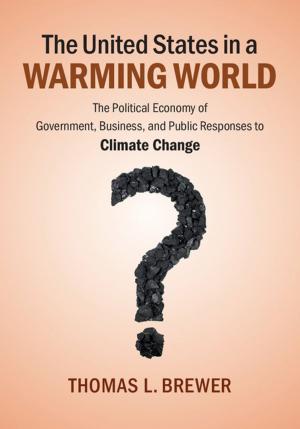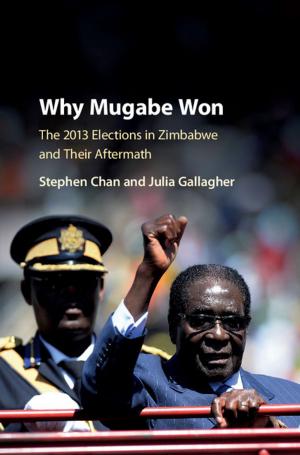Our Uncommon Heritage
Biodiversity Change, Ecosystem Services, and Human Wellbeing
Business & Finance, Economics, Nonfiction, Science & Nature, Nature| Author: | Charles Perrings | ISBN: | 9781139905169 |
| Publisher: | Cambridge University Press | Publication: | April 17, 2014 |
| Imprint: | Cambridge University Press | Language: | English |
| Author: | Charles Perrings |
| ISBN: | 9781139905169 |
| Publisher: | Cambridge University Press |
| Publication: | April 17, 2014 |
| Imprint: | Cambridge University Press |
| Language: | English |
Biodiversity change is the biggest environmental problem of our time. It leads to much more than species extinctions, affecting the food we eat, the diseases we face, our vulnerability to fire and flood, and our ability to adapt to climate change. Our Uncommon Heritage explores the many dimensions of human-driven biodiversity change. It integrates ecology, economics and policy to examine the causes and consequences of changes in ecosystems, species and genes, and to identify better ways to manage those changes. It explores the place of biodiversity in the wealth of nations, the rights and responsibilities people have for natural resources at local, regional, national and international levels, and the challenges faced in protecting the common good at the global level. This is an important book for students and researchers in the fields of conservation and sustainability science, ecology, natural resource economics and management. It also has much to say to those engaged in international conservation, health, agriculture, forestry and fisheries policy.
Biodiversity change is the biggest environmental problem of our time. It leads to much more than species extinctions, affecting the food we eat, the diseases we face, our vulnerability to fire and flood, and our ability to adapt to climate change. Our Uncommon Heritage explores the many dimensions of human-driven biodiversity change. It integrates ecology, economics and policy to examine the causes and consequences of changes in ecosystems, species and genes, and to identify better ways to manage those changes. It explores the place of biodiversity in the wealth of nations, the rights and responsibilities people have for natural resources at local, regional, national and international levels, and the challenges faced in protecting the common good at the global level. This is an important book for students and researchers in the fields of conservation and sustainability science, ecology, natural resource economics and management. It also has much to say to those engaged in international conservation, health, agriculture, forestry and fisheries policy.















